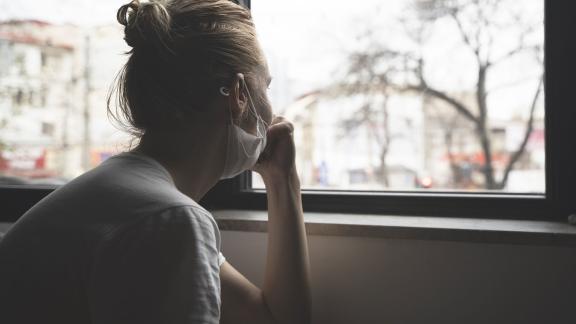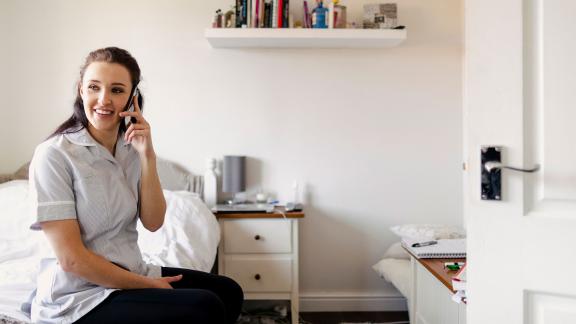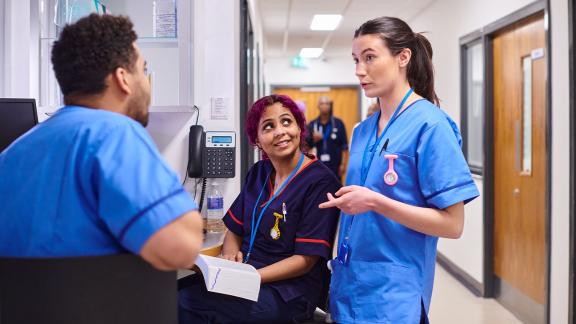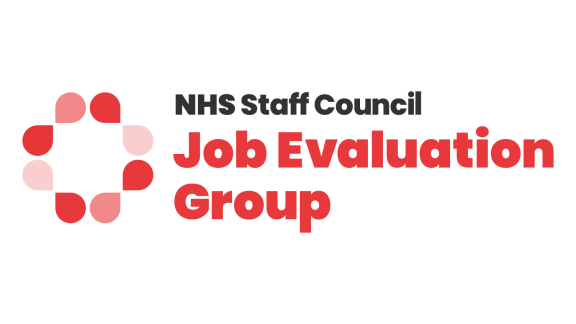Self isolation [Withdrawn]

The following DHSC guidance was withdrawn on 7 July 2022 and is now archived.
This section deals with issues related to the national pay, terms and conditions and general employment of NHS medical and non-medical staff, during the period of the COVID-19 pandemic. While the advice may be useful to employers in primary care settings, the advice in some cases may relate to NHS terms and conditions or processes, that are different in primary care settings. Separate guidance for primary care will follow.
Staff must continue to follow government advice on isolation and treatment and should seek advice from their employer if they are unsure.
- NHS Terms and Conditions of Service Handbook (Agenda for Change) staff.
- Medical and dental staff.
To help prevent the spread of the virus, staff may be advised to self-isolate. This advice may be provided by their organisation, a GP, NHS 111, NHS Test and Trace and/or the government. If an individual is told to self-isolate or they fall into a category where self-isolation is recommended, they should follow their organisation’s emergency preparedness procedures or other local procedure for notifying the organisation of their absence.
If any NHS member of staff meets the definition of vulnerable, as set out in government advice, and is, during the course of their work, likely to come into contact with someone who is displaying symptoms of COVID-19, they should inform their line manager immediately.
Staff who are self-isolating, but are otherwise well enough to work, should agree with their line manager whether working from home is a possibility. Line managers should consider the work that can be done remotely, and organisations should consider developing/updating their local homeworking policies.
December 2021 update
Following the government's move to 'Plan B' in response to the emergence of the Omicron variant, on 16 December 2021 Ruth May Chief Nursing Officer, England, Dr Nikita Kanani Medical Director for primary care and Prerana Issar Chief People Officer for the NHS published updated Public Health England guidance for NHS staff, students and volunteers about self-isolation and their return to work following COVID-19 contact - letter to the NHS.
Pay for staff who are told to self-isolate
It is essential for infection control purposes that staff members who are told to self-isolate, do so as quickly as possible. NHS England and NHS Improvement wrote to chief executives on 2 March 2020, stating staff should receive full pay whilst in self-isolation. This includes bank staff and sub-contractors, who have to be physically present at an NHS facility to carry out their duties.
Full pay
Full pay must be interpreted as paying what the staff member would have otherwise earned if they were not in isolation, which would include any pay enhancements. Employers should use their usual processes for calculating full pay, for example, using an agreed reference period or other agreed process.
Bank workers
Staff should also receive full pay while self-isolating for all pre-booked bank shifts that they would have worked had they not self-isolated. This applies to staff who have a substantive contract with their employer, and to bank-only staff.
Trusts should refer to their bank booking system on the day the member of staff notifies them of self-isolation. Payment should be arranged on the normal pay date, using agreed rates for any shifts booked at that point for the period of self-isolation. Data collected from trusts shows that almost all have a rostering system that books shifts at least one month in advance, so this approach should not lead to excessive additional administrative burden for trusts and would mean that staff were paid for the shifts they would have worked.
NHS Professionals are following a similar approach.
Alternatively, trusts may choose to pay bank workers self-isolating on a ‘look back’ approach, looking at what they have earned over a reference period, and paying during the period of self-isolation.
Agency workers
Regardless of whether staff hold a substantive contract and do additional work through an agency, or are an agency-only worker, no earnings from agency shifts will count towards the calculation of full pay for the purposes of self-isolation or sickness absence.
Agencies are advised that they will need to ensure that the staff they offer to the NHS have not been advised to self-isolate. NHS employing organisations should review their existing agreements with agencies on ensuring the staff they provide are safe to work.
Agency workers with no substantive contract with an NHS employing organisation
Where an individual has no substantive employment with an NHS employing organisation, they will not be entitled to any pay from the NHS. Individual agencies should determine their own approach to pay for employees that have to self-isolate.
The same principle applies where an individual is operating through a personal services company and contracting directly with an NHS providing organisation.
Substantive staff undertaking agency work outside of their substantive employment with the NHS
Where a substantive employee works additional agency shifts, the individual should be paid what they would have earned under their substantive NHS contract.
Any earnings staff would have earned via an agency are not included in the definition of full pay. For example, the individual’s full pay would be what they would have earned under their substantive employment, not inclusive of any agency earnings.
Further information will follow on how agency contracts should be managed during the pandemic.
Subcontractors
Trusts should ensure that subcontractors who have to be physically present at an NHS facility to carry out their duties should receive full pay whilst self-isolating. Trusts should determine which subcontractors and groups of staff this will apply to. This may include certain staff groups involved in soft facilities management, hard facilities management, wholly-owned subsidiaries, and other relevant outsourced services.
Returning to work following self-isolation
If an individual member of staff is told that they are likely to be away from work for longer than the relevant period of self-isolation as advised by government, they should follow their organisation’s emergency preparedness procedures or other local procedure for notifying the organisation of their absence.
This may be the case for at-risk groups who have been advised to isolate for longer.
Staff who are not advised to self-isolate, but have concerns about returning to work
If staff are not advised to self-isolate and are neither ill nor diagnosed with COVID-19, organisations should handle this situation sensitively, exploring with the member of staff any concerns they may have about returning to work. Some staff may be concerned that returning to work in a healthcare setting could put them, their families and any vulnerable dependants at risk.
Careful consideration should be given to options that could allow the member of staff to work from home, or in other healthcare settings that would allow them to use their skills/experience.
If staff remain concerned, and if resolution is not possible, employing organisations could consider providing unpaid leave, but all possible options should first be explored. Acas has published general guidance on COVID-19, last reviewed 20 April, that explores the issue of staff who are concerned about returning to work.
The NHS Staff Council also published a statement on COVID-19 on 28 February 2020 (PDF) looking at the key issues for consideration.
If the employee remains concerned about returning to the workplace, the organisation should consider applying local policies. It may be possible, in these particular circumstances, for the employee to work flexibly or to arrange annual leave or unpaid leave.
If employers and employees are unable to reach agreement on the best way forward, after considering all reasonable steps, as a very last resort, the employer may need to discuss with the member of staff the possibility of disciplinary action.
Quarantine and self-isolation on entering or returning to the UK
Revised guidance has been produced by a joint working group of the NHS Staff Council Executive. Please read the updated guidance.



